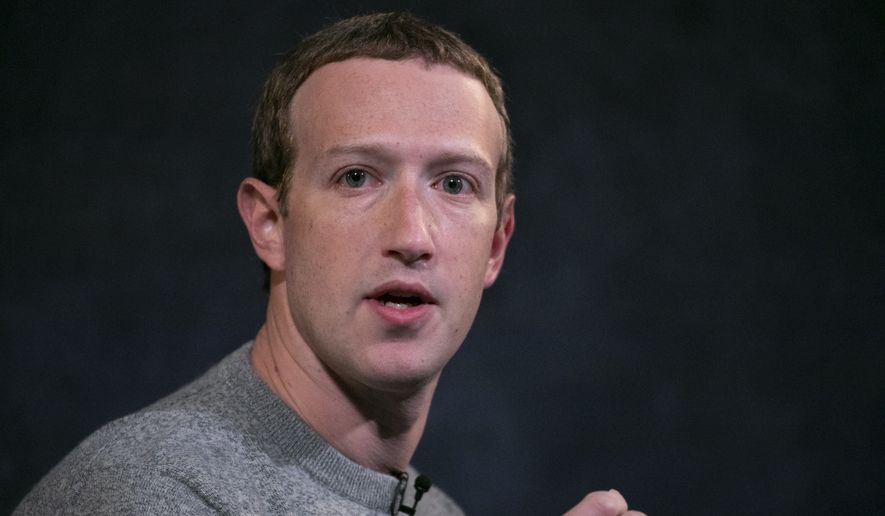Facebook said Thursday it tore down ads from President Trump’s reelection campaign for violating its policies regarding hate speech, escalating the feud between political conservatives and social media platforms.
President Trump’s campaign ran ads featuring an inverted red triangle, a symbol once used by Nazis to designate political prisoners, communists and others in concentration camps. The ads requested the president’s supporters sign a petition opposing the far-left group “Antifa” as a terrorist organization. The Trump campaign says Antifa also uses the symbol.
“We removed these posts and ads for violating our policy against organized hate,” a Facebook representative said. “Our policy prohibits using a banned hate group’s symbol to identify political prisoners without the context that condemns or discusses the symbol.”
Trump campaign spokesman Tim Murtagh challenged Facebook’s enforcement decision as unevenly applied.
“The inverted red triangle is a symbol used by Antifa, so it was included in an ad about Antifa,” Mr. Murtagh said. “We would note that Facebook still has an inverted red triangle emoji in use, which looks exactly the same, so it’s curious that they would target only this ad. The image is also not included in the Anti-Defamation League’s database of symbols of hate. But it is ironic that it took a Trump ad to force the media to implicitly concede that Antifa is a hate group.”
Facebook had previously resisted changing any policies surrounding political advertising on its site and not fact-checking political speech. In recent months, Facebook has grown more aggressive about politicians’ posts and has removed content from Brazilian President Jair Bolsonaro in March for spreading what the company called misinformation about the coronavirus.
Facebook’s newly antagonistic posture follows the lead of other social media platforms that have targeted Mr. Trump and his supporters. Snapchat this month decided to remove Mr. Trump’s content from its Discover feature while allowing the president to continue to have an account and post content. Twitter restricted the visibility of Mr. Trump’s tweets involving mail-in voting and civil unrest.
The social media companies’ actions provoked Mr. Trump to respond with an executive order that he said was necessary to restore fairness online. Mr. Trump’s order directed the Federal Communications Commission to draft a regulation that could scrap legal liability protections for internet companies if they censor or edit content online.
On Wednesday, Senate Republicans and the Justice Department offered competing proposals for limiting the liability protections given to internet platforms under Section 230 of the Communications Decency Act.
With hopes of avoiding the government’s crosshairs, Facebook announced in May the first members of an oversight board that would operate separately from the company and review the platform’s content moderation decisions.
Other companies are also being targeted. After Google threatened to remove the conservative website The Federalist from its advertising platform, Sen. Ted Cruz, Texas Republican, sent a letter to Google warning of repercussions if it made good on its threat against conservatives.
Facebook similarly could find itself out of the good graces of its few remaining allies in the Trump administration, but it may find new supporters among fans of presumptive Democratic presidential nominee Joseph R. Biden. Last week, Mr. Biden’s campaign pressed Facebook to crack down on Mr. Trump. Facebook resisted that call and responded that it intended to protect all political speech.
• Ryan Lovelace can be reached at rlovelace@washingtontimes.com.




Please read our comment policy before commenting.